In 2015, I sat on the beach on our final night in our favourite little Spanish town and mentally committed to getting my family into a position where we could earn and invest money regardless of location.
The sole driver of that was to be able to return to live in Spain, a country we absolutely adore.
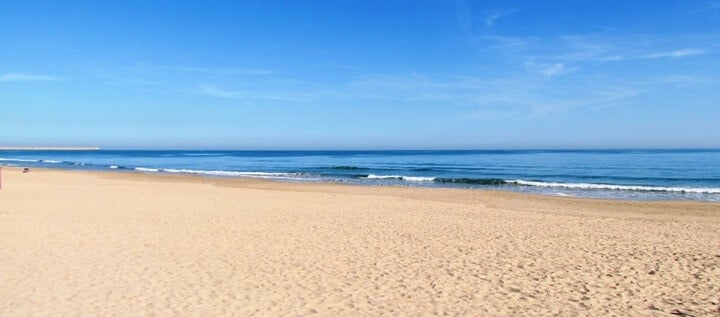
At first, I called the plan my ‘semi-retire’ early plan, because, at the time, traditional FIRE (is that a thing?) was all about saving half of your income (or more) for ten years then retiring.
I was a mum of 2 little boys and had no desire to go back to regular work for ten years until they were teenagers before calling us financially independent. There had to be another way.
‘Working out a way of having time freedom while the kids were young and financial freedom in the future was the goal’
We don’t need both at the same time, but we need both.
We came back from Spain, downsized to our small and cheap house (which we’d previously owned as a rental property) and my husband proceeded to get a job close to home with a base rate just above minimum wage.
I stayed home with two kids and tried to figure out how the hell we were going to make it happen.
Planning for success
I devised a rough plan.
1. Pay off our small and cheap home so we could rent it out when we travel – giving us a small income of $1000/month after management fees and insurance.
2. Build an online business that could make $3000/month so we could work while we travel and not stress about saving for the future (something that usually falls by the wayside when you are travelling and living off savings).
3. Launch some investments that could tick over while we were away, essentially front-loading our investment plans and then allowing them to coast while we travelled.
The plan started with the small and cheap house. The mortgage was around $158,000 when we returned. We’d purchased for $195,000 in 2013.
For two years we scrimped, saved and hustled to pay down the mortgage. Any extra income over and above our fixed living costs went to the mortgage.
100% of my fledgling business income went to the mortgage as did the small rental income we received on our bigger house.
In 2017, we made the decision to sell two high-maintenance rental properties that needed far more work than we could handle. The sale proceeds helped us finish off the mortgage completely.
We then made a start on the investments. We already had $200/month going directly into a Total World Stock ETF (VT for my American readers) but hadn’t really paid much attention to it.
We put a $10,000 lump sum into Simplicity Growth (which invests in NZ/Australia and the entire world) and split any extra income between building that fund up and paying down our one remaining rental property.
We wanted the rental property to be at a level where it would finally be cash flow positive which was right around $58,000. Once we hit that level, we started to build a travel savings fund in order to qualify for residency in Spain.
Currently, we have $40,000 in a travel savings fund and $10,000 in a term deposit for our travels and have stopped saving for travel.
Investing in real estate again
In 2018, we decided (I say we but I mean I – I’m totally the money nerd in our relationship) that we would like to invest in property in Christchurch, New Zealand but ONLY if the property could be financed 100%.
That means utilising the equity in our paid-off home – and completely cash flow positive (covered all outgoings including principal and interest loan, insurance and council rates) from Day One.
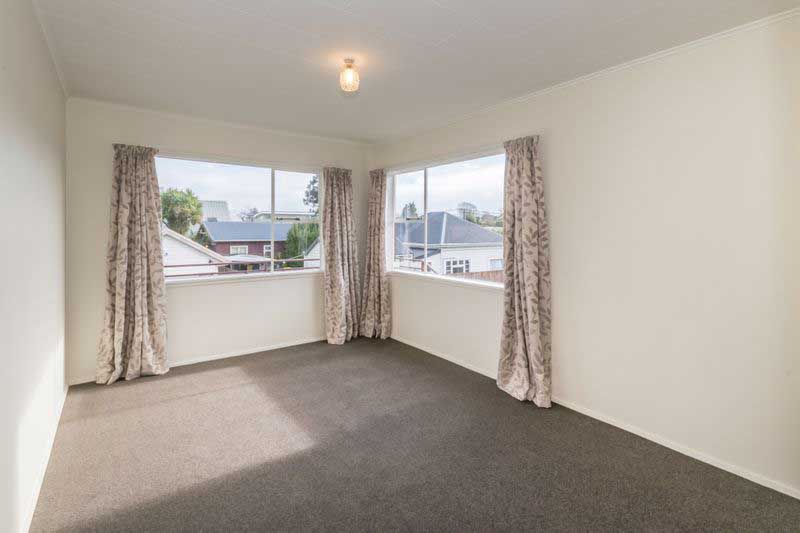
It took a long while to find the right property, but we settled on one in April 2019. You can read more about that property purchase here.
As we inherited an amazing tenant and the house had recently been renovated, all we had to do was sign some papers with the property manager and watch the money roll in.
After that purchase, we talked to our mortgage broker who confirmed that with my recent income growth, we could qualify for more finance at around 300k so we started to look for another property.
We found a wonderful property and had an offer accepted at 310k. The building inspection pointed to there being a cracked concrete foundation.
The seller didn’t want us lifting the carpets to take a closer look. In Christchurch, after our huge earthquake sequence from 2010-2011, there is just no way I’m taking on a potentially cracked concrete foundation. We walked away.
A few weeks later, I was surfing the real estate sites on a Friday and saw a property just listed with the first open home to occur the following day. I did my sums and worked out my maximum price.
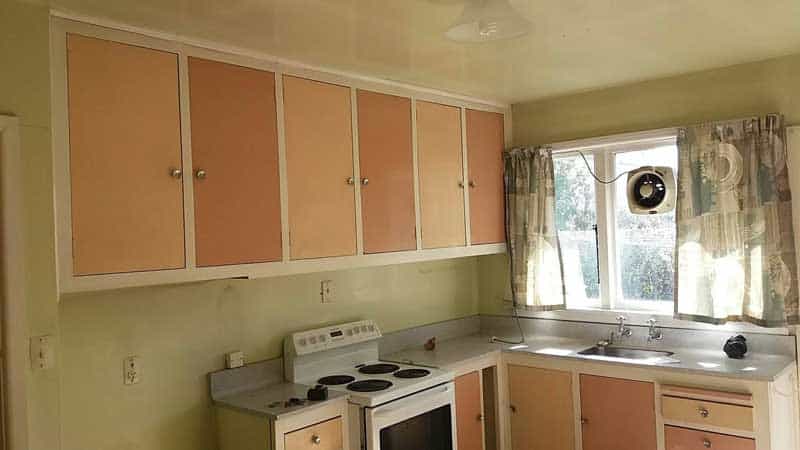
On Saturday morning, I hopped on my bike and rode to the open home. Within 1 minute I knew I would be making an offer.
There were a lot of people at the open, which confirmed my suspicion that properties in this part of the city were moving quickly.
I told the agent I wanted to make an offer but I would wait until everyone left.
As I was writing up the offer in the (original 1960s as you can see above) kitchen, a woman came into the room and asked what I was offering. I said some choice words to her and the agent informed her that he couldn’t share that information.
She wanted to bring her husband through before making an offer. Big mistake.
I got a phone call 3 hours later asking if I’d increase my offer 5k which would take me to my maximum for that property but I was willing to do it. The property was ours.
There were no major hiccups working through the due diligence, and we took possession on the 25th of November, 2019.
We are currently in the depths of a renovation project expected to take until late January to complete. At that stage, we plan to rent the property for $350/week, giving a gross return of 7.28%.
We are now done with purchasing real estate. When we travel next year, we won’t have my husband’s job to qualify for bank finance anyway, so all future investments will be in the share market using our extra cash.
The loose plan is to have the property portfolio fund itself, while we divert extra income or savings into growth investments. As I plan to continue working on my business indefinitely, our version of FI/RE really only accounts for my husband retiring early.
My kids are currently 4 and 7. I figure we’ve got 17 years more to financially support them at which stage I can call us fully retired. We’re not racing against a self-imposed ten-year clock here, so there is time to enjoy the present.
In 17 years I’ll be 54 and my husband will be 57.
The details will work themselves out closer to the time but I envisage we’ll draw down our living costs from our share investments at that age. We will have well and truly exceeded 25* annual expenses by then.
If the business is still pumping, we’ll probably just keep socking money away.
As each property becomes debt-free, we will either take the rent as income or sell and bulk up our investment funds. By that time, we might well be living in Europe full time. Or Mexico. Who knows?
What we do know is that we are in a financial position right now to take a year out of traditional work and travel the world with our kids without going backwards financially.
It took six years of frugality, sacrifice and creative thinking but we’ve achieved our goal of time freedom before our kids got too big and we are so excited about what 2022 has in store.
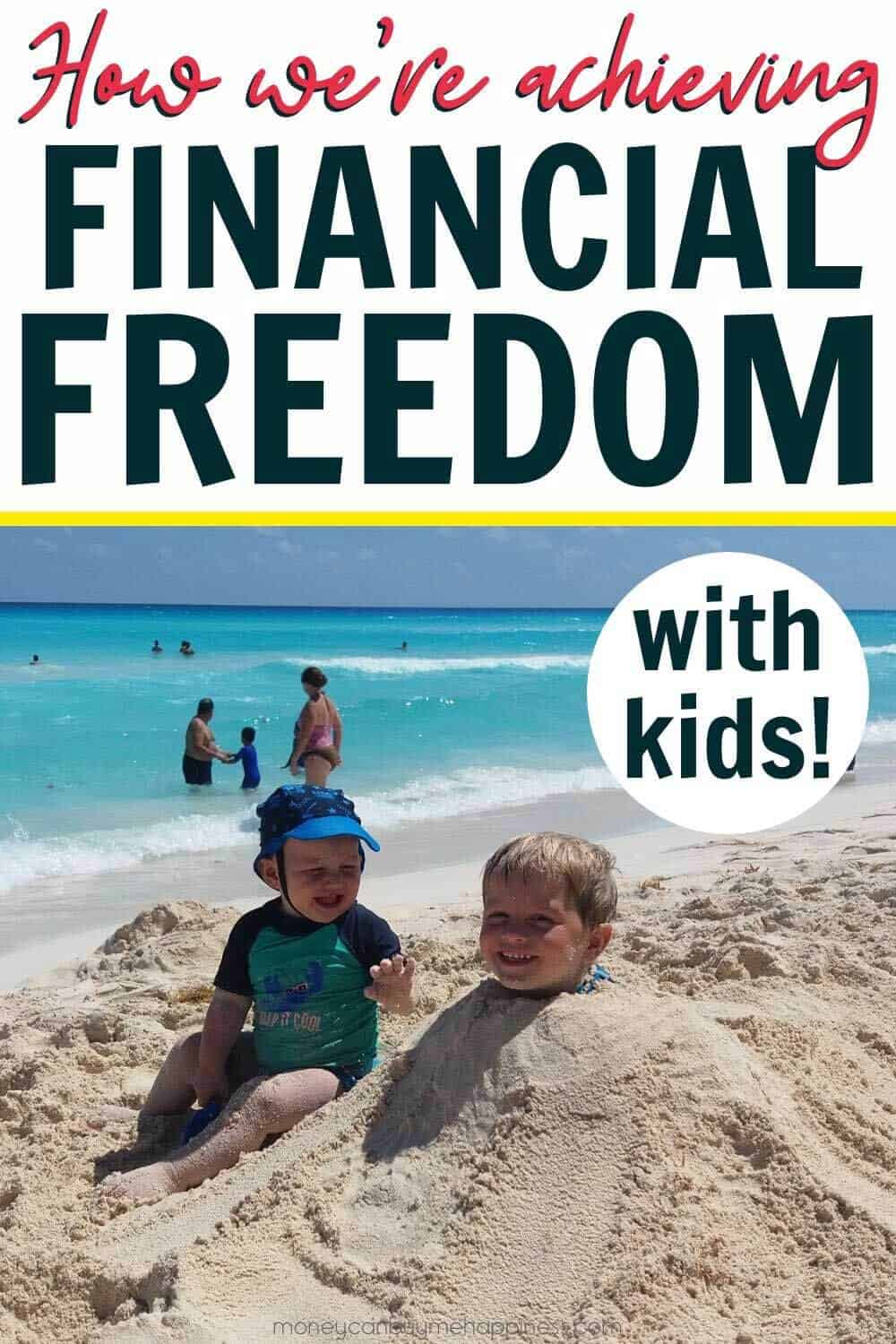

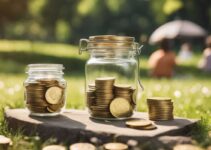

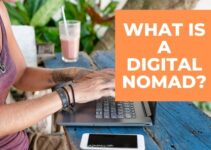
I think you have it well-defined here, Emma! I would add one word. Flexibility. Once you don’t have to work, you aren’t tied to a schedule or a particular geography. You can do anything you want, even paid work if it suits you.
Yes. Flexibility is definitely a part of it – and if we love our jobs then we can stay or go once we reach FI. It’s being able to make the choice.
I think financial freedom is the ability choose how I spend each and every day. I’m not tied to working for someone else. I can choose to sleep late or get up before the sun. I can put forth my effort towards earing money or towards working on a hobby. In the end, I have the choice to do what I want. And I think that brings true happiness.
Spot on. It’s having the choice.
To me financial freedom is having more options available to you. It’s making choices that are dependent on what you want rather than what you just need.
Hi Emma,
I’m loving your blog! You are so much further ahead than me! I wrote about financial freedom as my first two blog posts 2 years ago. This link (http://www.monetary-meg.com/tips-for-financial-freedom/) is to my post on tips for achieving financial freedom. I hope these tips might help your readers.
http://www.monetary-meg.com/tips-for-financial-freedom/
Thanks Meg – I love your blog too. Thanks for sharing your tips – I’m sure if more Kiwis lived like this we would all be in a much better position.